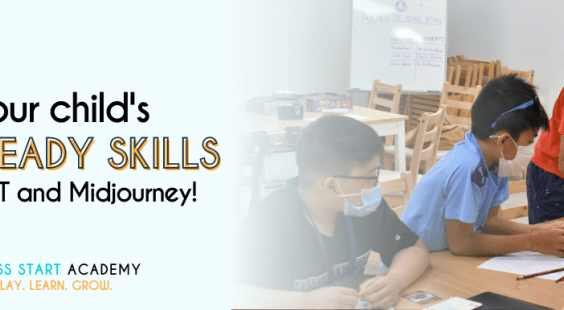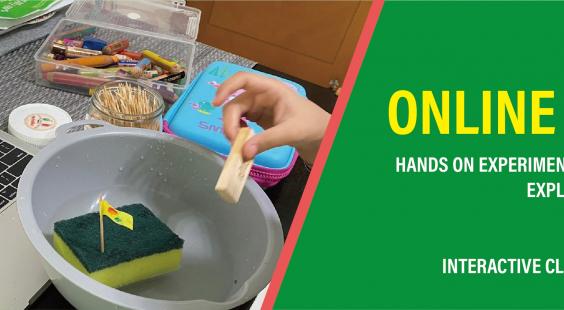
Social Skills Can Make All the Difference – Interview with Bernice Lee, a mother and entrepreneur
Bernice explains that she first discovered the importance of having polished social skills to “fit in” when she arrived at Yale University to pursue her bachelor’s degree. In her own words, “I was a public school kid who had spent most of my life as an ethnic minority. My parents had outdone themselves by paying for extra lessons to help me do better in school and to learn music and swimming – but my level of exposure was nothing compared to my peers at Yale who had attended prestigious secondary schools. They were well-spoken, confident, and socially savvy. Some of them had refined table manners I’d never seen before. Others easily made small talk at cocktail receptions while I hung back uncertainly, clutching a beverage in my hand. In our final year, when many of us had interviews for graduate school or jobs, other students knew what to wear and how to do their hair but I didn’t have a clue. I felt completely out of my league.”
It was in college that Bernice realized how different social groups have their own norms, and how your knowledge or ignorance of certain rules can determine whether you’re included or excluded, and whether you have access to certain opportunities or not.
“Was I a dumb kid? No, not at all. Was I ill-mannered? No, of course not. But did I miss out on receiving a certain type of social education that would’ve given me an edge? Yes, absolutely.” Bernice believes that equipped with the right knowledge and skills, every person can present themselves at their best and still be authentic.
That’s why her mission from the very beginning has been to develop poised and confident young leaders, regardless of their socioeconomic status. “I’ve taught students from Band 3 schools as well as top international schools. I’ve taught migrant families and CEOs of global companies” Bernice says.
From her previous experience as a human resources manager at multinational companies, Bernice saw first-hand how good etiquette and strong interpersonal skills are essential for most people to succeed in the workplace. During behind-the-scenes talent discussions about performance ratings, bonuses, merit increases, promotions, and layoffs, the conversations did not just focus on people’s technical skills or business results. How they achieved their results was also important. Is she a team player? How do clients respond to her? How well does he handle difficult people and conflicts? Does he have leadership presence and gravitas? Does he command respect from the team? How well does he collaborate with people from different departments?
Although Bernice didn’t hear managers talk specifically about etiquette in performance discussions, they definitely discussed competencies that are related to etiquette. Does the person treat others with dignity and respect? Does he pick up on social cues and respond to them accordingly? Is he aware of his own feelings, aware of other people, and able to regulate his own emotions and behaviors so that he can stay positive and resilient? Does she use information about facts and emotions to make effective decisions? Can she make people feel valued and inspire performance in her team?
It is this link between these elements of emotional intelligence and etiquette that has formed the cornerstone of Bernice’s coaching and etiquette training work - helping people to develop their interpersonal skills, emotional intelligence, etiquette and manners so that they’re positioned for success in the world of work.
While coaching had been a part of Bernice’s previous work as a human resources manager, she formally added it to her services last year because she recognized that her clients needed it. For example, corporate clients would tell her that a particular team member or leader lacks confidence or is rude. However, business etiquette training cannot solve these problems. Etiquette training is useful when staff members are new to the workforce and are unfamiliar with business etiquette, or they need the knowledge in order to bridge social or cultural gaps when they interact with colleagues, clients or suppliers.
Lack of confidence, rudeness and other undesirable workplace behaviors are typically driven by deep emotions and thoughts that only professional coaching can address.
Being a brain-based coach means that the methodology Bernice uses is rooted in contemporary neuroscience. Using the latest scientific insights into how the brain works, she is able to create powerful, positive and transformational changes in people.
The simplest way to explain how brain-based coaching works is with the Iceberg Model from cognitive psychology. “Imagine an iceberg. What we see above the water line is only the tip of the iceberg, which represents our results and observable behaviors. Most people focus on the tip of the iceberg. Below the water line lies the bulk of the iceberg, which represents our emotions, thoughts, values and personality. The elements below the water line directly and indirectly influence what’s above the water line” Bernice says.
She believes that coaching helps to discover and understand what’s happening beneath the water’s surface. Once a coachee shifts their unproductive thoughts or feelings to productive ones, then their behavior and results will change, too. Bernice explains that a coach’s role is to help you achieve a goal by asking questions that prompt you to examine your own thoughts and feelings, dig for insights, and come up with solutions that work for you. A coach also helps you to identify and change the behaviors that aren’t serving you. A coach spends most of the time inquiring and usually doesn’t give direct advice or solutions.
Reflecting on her own entrepreneurial journey, Bernice gives the following three pieces of advice to fellow entrepreneurs:
1. Hire a mentor or coach now
“I fumbled around on my own for more than four years before I hired a mentor. The advice he gave me increased my business revenues 30% in one year! From then on, I continuously invest in my personal development by taking courses, joining masterminds, and hiring mentors or coaches to shorten the learning curve so that I get better results, faster.”
2. Always stay in action
“Some new entrepreneurs get stuck because they’re afraid of not being good enough. That was me, too. To succeed you need to push past fear or anxiety and accept that ‘imperfect action is better than no action at all’. Nothing will ever be perfect so take massive action by doing things that will meaningfully move your business forward. Don’t just do busy work.”
3. If the business isn’t working, take a good, hard look at yourself
“One of my mentors said ‘A company is a reflection of its founder: her values, beliefs, strengths and weaknesses. If a business is doing well, it’s because of the founder. If the business is NOT doing well, it’s also because of the founder’. Sometimes entrepreneurs believe they’re not getting the results they want because they’re missing a strategy or technique when, in fact, what they should do is identify and change their own thought patterns and habits that are holding them back. Entrepreneurship is not only about starting and growing a business. It’s a journey of self-discovery and personal growth.
Nearly all of Bernice’s clients are acquired through word of mouth. However, more new coaching clients are signing up after attending her free webinar, www.resilientleadersecrets.com. There’s no doubt that helping clients to get great results yields the best testimonials of all.
Visit Bernice’s LinkedIn: http://www.linkedin.com/in/berniceleeonline
Bernice’s e-mail: info@eli-asia.com
Testimonials
1. Arcadia Kim, Founder of Infinite Screentime (screentime coach for families)
"If you are trying to pivot or launch your business in these very unique times, the best investment you can make is hiring Bernice. She is like powerful magic pixie dust that will give you deeper meaning and productivity in your business. I launched my business a little over one month ago. Before my launch, I was plagued with self-doubt and questions about how I was going to launch my internet-based service helping families change their relationship with screentime. I actually had been working on my mission and form of the business for nearly a year, but with no clear deliverable or sizeable product...in this short time, I landed two features on the front page of Mashable and Motherly. My community has grown from zero to nearly 500 on IG and a private FB group of nearly 300 people. Everyday, my mailing list is growing, and it feels great."
2. Dr. Liyuan Yu, Physician
"[One of my goals] was about managing the immense stress I felt about my daughter applying to university. Trying to be a perfect mother I wanted to help her to get into a top school, which was toxic for our relationship. By working on my mental state and using strategies Bernice taught me I was able stop my own negative behaviours and be helpful and supportive to my child instead."
3. Christine Choi, Founder of Elephant Community Press
“I came to Bernice feeling overwhelmed and exhausted. Running a small business, teaching my own students, and being the mom of two young kids, I was totally flat out, and I knew it wasn’t sustainable. Bernice helped me become more aware of my habits of thinking that led me astray and derailed my progress to my goals. I came out of this coaching journey with surprising calm and confidence. In a time of a lot of uncertainty, change and stress [Hong Kong protests, COVID-19], I’ve actually felt relatively calm and grounded. My sessions with Bernice kept me focused and reminded me what was important to me.”








